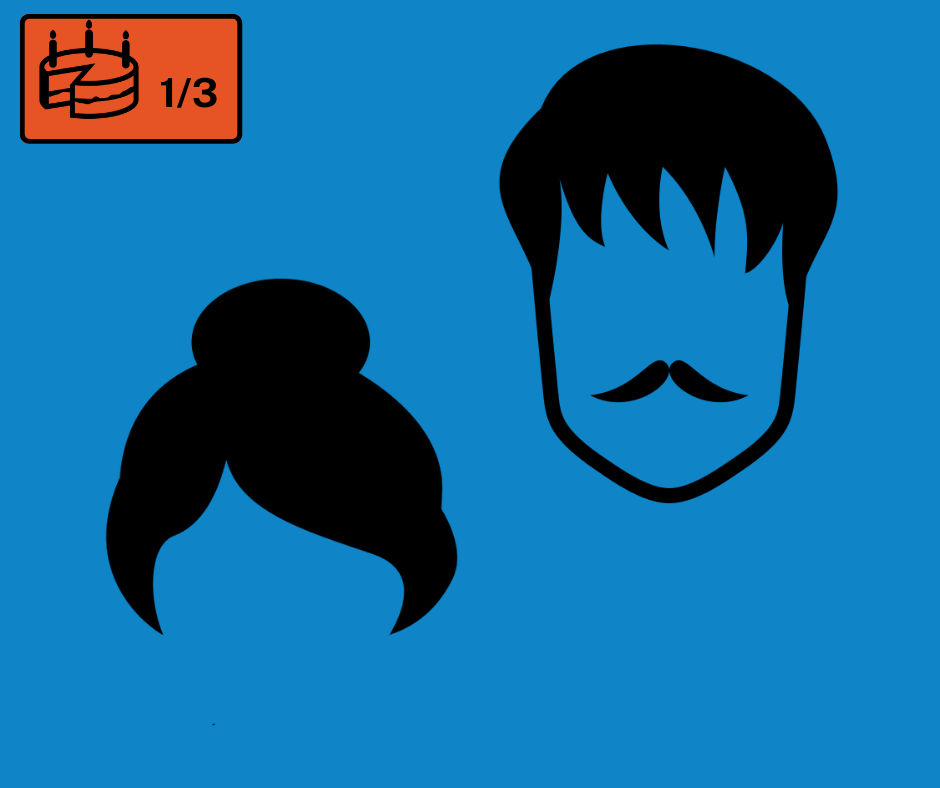David Bowie, born David Robert Jones, a British musician, singer, songwriter, and actor rose to fame in the late 1960s. Born in 1947, he started his career in music in the early 1960s, but it wasn't until the release of his hit single Space Oddity in 1969 that he became a household name. Jones became Bowie in 1966 to avoid confusion with Davy Jones of The Monkees, who had become popular around the same time. The name was inspired by the Bowie knife, which the singer found to be a powerful and iconic symbol.
Liza Jane
First single that David Bowie ever released, back in 1964. At the time, Bowie was only 17 years old, and he was still going by his birth name, David Jones. It showed Bowie's early interest in American rock and roll. The single wasn't a commercial success, but it did give Bowie his start in the music industry. Indeed, the song was noticed by Leslie Conn who helped Bowie sign with Parlophone Label.
I Pity the Fool
David Bowie recorded the song with the band The Manish Boys in 1965. The song was a cover of a blues tune by Bobby Blue Bland, and it was a departure from the R&B sound that Bowie had previously been exploring. The song features Bowie's distinctive vocals, which would become a trademark of his later work. Jimmy Page is the guitar leader for this recording.
You've Got A Habit Of Leaving
Single that Bowie released in 1965. The song features a catchy melody and a melancholic tone, and it showcases Bowie's early songwriting abilities. The song was a commercial flop, but it would later become a favorite among fans.
I'm Not Losing Sleep
Released in 1966, first single produced by Tony Visconti who became a regular partner of Bowie for numerous years, the song features a catchy pop melody and upbeat lyrics, and it shows Bowie's versatility as a songwriter. The single didn't chart, but it helped to establish Bowie as a rising star in the UK music scene.
She's Got Medals
Released in 1967. The song was a commentary on gender identity and sexuality, and it was a departure from the more straightforward rock and roll that Bowie had been exploring up to that point. The song was met with mixed reviews, but it showed Bowie's willingness to push the boundaries of what was acceptable in mainstream music. The song tells the story of a woman who dresses as a man to join the British army and eventually becomes a war hero. This song was inspired by the true story of Hannah Snell, a woman who disguised herself as a man to join the army in the 18th century.
Space Oddity
Released in 1969, the song tells the story of Major Tom, an astronaut who becomes lost in space. The song features a haunting melody and surreal lyrics, and it became a commercial success for Bowie. The song was re-released in 1975, and it became a chart-topping hit. The song also gained popularity as it was broadcasted during the Apollo 11 lunar mission in 1969, when Neil Armstrong and Buzz Aldrin walked on the moon. The song was used in TV broadcasts and documentaries covering this historic mission. It was recorded in two different versions: the original 1969 version and a remixed version in 1975 that was used for its re-release as a single. This version is longer than the original and features additional sound effects that create a more intense space atmosphere.
Letter To Hermione
A song that Bowie released in 1969. The song was written about Hermione Farthingale, a former girlfriend of Bowie's who had left him for another man. The lyrics express Bowie's longing for her and his sadness at the end of their relationship. Interestingly, Farthingale was also the subject of another Bowie song, Life on Mars?, which was released several years later.
The Man Who Sold The World
Title track of Bowie's third album, which was released in 1970. The song features a heavy guitar riff and haunting vocals, and it was a departure from the more pop-oriented sound that Bowie had been exploring up to that point. The song was later covered by Nirvana in 1993, which helped to introduce Bowie's music to a new generation of fans.
Almost Grown
Bowie recorded the song in 1971 for a BBC radio session. The song is a cover of a Chuck Berry tune, and it features Bowie's energetic vocals and guitar playing. The song was never released as a single, but it remains a favorite among Bowie fans.
Bombers
Song that Bowie recorded for a BBC radio session in 1971. It features a laid-back, acoustic sound, and it showcases Bowie's songwriting abilities. The song was never released as a single, but it has since become a fan favorite.
Oh! You Pretty Things
Song that Bowie released in 1971 on the album Hunky Dory. The song features a catchy melody and lyrics that explore themes of evolution and human potential. The live version of the song from 1973 showcases Bowie's stage presence and charisma, and it is a testament to his enduring legacy as a performer.
Hang On to Yourself
A song that was first released in 1971 on the album The Rise and Fall of Ziggy Stardust and the Spiders from Mars. The song features a hard-driving rock sound that was characteristic of Bowie's early work. In live performances, Bowie would often perform the song with incredible energy and stage presence, and it became a fan favorite. It was inspired by a line from the book The Gospel According to Saint Matthew, which Bowie had read while on tour.
Ziggy Stardust
By creating Ziggy Stardust, Bowie created an extraterrestrial rockstar persona that allowed him to express himself more freely and connect more closely with his audience.
Chant of the Ever Circling Skeletal Family
It was the closing track on Bowie's 1974 album Diamond dogsThe song features a chanted chorus and a driving beat, and it showcases Bowie's ability to experiment with different musical genres. The song has since become a cult favorite among Bowie fans.
Dont Bring Me Down
Released in 1973 on the album Pin ups. The song is a cover of a tune by The Pretty Things, and it features a driving rock sound and Bowie's distinctive vocals. The song was a commercial success for Bowie, and it helped to cement his reputation as a rock and roll icon.
David Bowie is a music legend who has inspired countless musicians and fans alike. His musical career spanned several decades, and he constantly pushed the boundaries of the industry with his innovative sound and style. Bowie was heavily influenced by fashion and used his image to enhance his music career. He collaborated with fashion designers to create iconic stage costumes and outfits. Over the course of his career, Bowie released numerous iconic albums and singles, constantly reinventing himself and his music. He collaborated with numerous renowned artists, such as Queen, Mick Jagger, and Iggy Pop. These collaborations allowed Bowie to explore new sounds and musical influences. Bowie continued to create music until his death in 2016, releasing his final album, Black Star, just two days before his passing. This last work is considered a poignant tribute to his life and music career.
Did you know the early titles of David Bowie or have you made some nice discoveries? Share your thoughts in the comments and don't hesitate to share with other fans and pop music enthusiasts. What records are in your collection? If you are missing some particular editions, feel free to add them to your Wish List or check our pages, you will surely find the gem you are missing in LP, 7-inch or maxi formats.
- Early Soul / RnB (50s/60s)
- RnB / Early Soul / Doo Wop
- Northern & Southern Soul
- Soul Funk / Disco (70s/80s)
- Soul 70s / Sweet / Mellow / Crossover
- Funk 70s / Soul Funk Bands / Early Funk / Rare Groove
- Blue-eyed soul funk / Psychedelic funk
- Disco / Boogie Funk
- P-Funk / Gogo Funk
- Funk 80s / Electro Funk
- Soul 80s
- Italo Disco
- Modern Boogie
- Groove Revival (90s/00s)
- Nu Soul / Modern Soul
- Acid jazz
- Groove Revival
- Afro
- Afro Funk / Afro Beat / Afro Jazz Fusion
- African Traditional
- Reggae
- Indian Ocean
- Sega
- Maloya
- Latin
- Latin Soul Funk / Boogaloo / Latin Jazz Fusion
- Salsa / Pachanga / Mambo / …
- Others South American Traditional
- Brazil
- Brazilian Soul Funk / Sweet / Mellow / Balanco / Disco / Boogie
- Bossa Nova / Brazilian jazz / Mpb
- Samba / Batucada
- Brazilian Blues / Pop / Rock / Punk
- Brazilian Regional / Brazil Others
- Accessories for protection and cleaning
- Transport packaging
- Brush and Cleaners
- Plastic sleeves for records
- Plastic sleeves for CD
- Record Displays
- Autograph Items
- Special Records
- Compilations
- Colored Vinyls
- Gold Disc
- Picture Disc
- Other Special Records
- Instruments
- Books
- Magazines
- Best magazine








